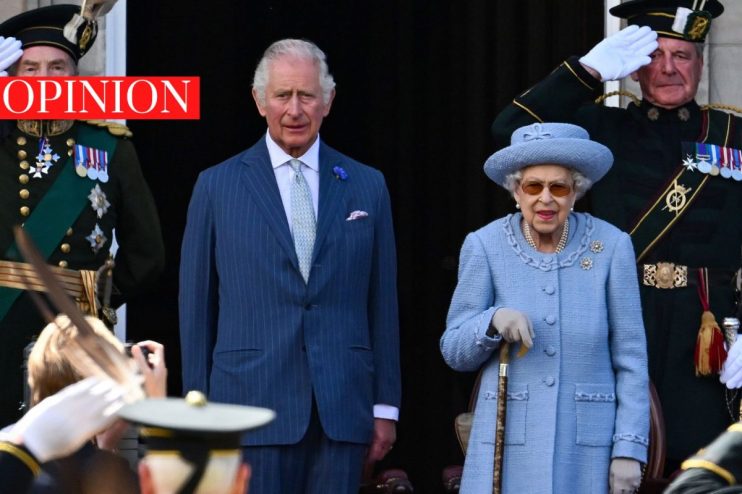A year on, King Charles has triumphed in keeping the love for the monarchy alive

King Charles has defied all predictions of a monarchy on the cusp of collapsing after the death of Queen Elizabeth, writes Will Cooling.
This week last year Britain said goodbye to its most beloved monarch and hello to its most despised Prime Minister. While Liz Truss personal and policy failures as Prime Minister only surprised me in how quickly she was bundled out of Downing Street, the way the country handled the death of Elizabeth II confounded my predictions.
It was far from uncommon for even non-royalists to predict that the death of the only monarch most of the population had ever known would be a moment of national trauma, similar to the outpouring of emotion that followed Princess Diana’s death twenty-five years earlier.
But that didn’t happen, and it didn’t happen in large part because the Royal Family didn’t want it to happen. And that’s because a nation wallowing in grief at the loss of Elizabeth would not be ready to take its new King and Queen into their hearts. Far from ceding the spotlight to eulogies for his late mother, Charles III was at the heart of events over the ten days of national mourning. He personally greeted crowds in London and addressed the nation in a special television broadcast the day after her death, allowed cameras into the meeting of the Privy Council that acclaimed him King, and toured the country before her funeral, visiting the parliaments and assemblies of Britain.
And this hyperactivity was not just in service of praying tribute to the past. In his short statement to the nation, the King outlined how he would act as monarch moving forward, and also moved quickly to confirm that not only would his wife be our new Queen but that his eldest son would succeed him as Prince of Wales. This meant that William’s wife would become Princess of Wales, a title denied to Camilla. He also pointedly confirmed that Prince Harry would continue to build his new life overseas. By moving quickly, he was able to impose his preferred arrangements before opponents were able to mobilise; be they super-fans of Princess Diana or Meghan Markel, Welsh nationalists, or constitutional reformers.
But more than that he placed his focus on the nation’s future, and his and his son’s role in that future. Ever so gently and subtly, the message was put across that the new King was a change for the better. His depth of experience as the longest serving heir apparent in history, was cited as a positive to him making an immediate success of his reign, whereas his mother was more reliant on advisors early on.
His military service in the 1970s, which had seldom been discussed while his parents were alive, out of fear it would look bad in comparison to their service during the Second World War, was now highlighted. That he was physically robust enough to revive the tradition of the monarch riding on horseback in uniform during his birthday celebrations, something his predecessor stopped doing in 1986, was praised by the same people who would never have dreamed of criticising her for riding in a carriage. I even found myself doing such mental gymnastics as I thought back on the late Queen’s life, and wondering whether it was rather thin of genuine accomplishments, compared to her more outspoken son, who had achieved success with charities, businesses, and activism.
What we have seen this past year is a masterclass in manufacturing consent. Those, like myself, who assumed that the gentle, very British personality cult that had been built up around Queen Elizabeth would continue into her death, misunderstood how ruthlessly focused the Royal Family is on ensuring that today’s monarch of the day is a popular and esteemed figure. The current monarch must always be the best monarch we’ve ever had. Otherwise, we might want to change who our head of state is.
It is therefore no surprise that predictions that support for the monarchy would fall away when the popular monarch died have proven to be wrong; recent polling show support for the monarchy being exactly where it was last summer. Truly this is a year that can be summarised by one simple saying; The Queen is Dead, Long Live The King.
